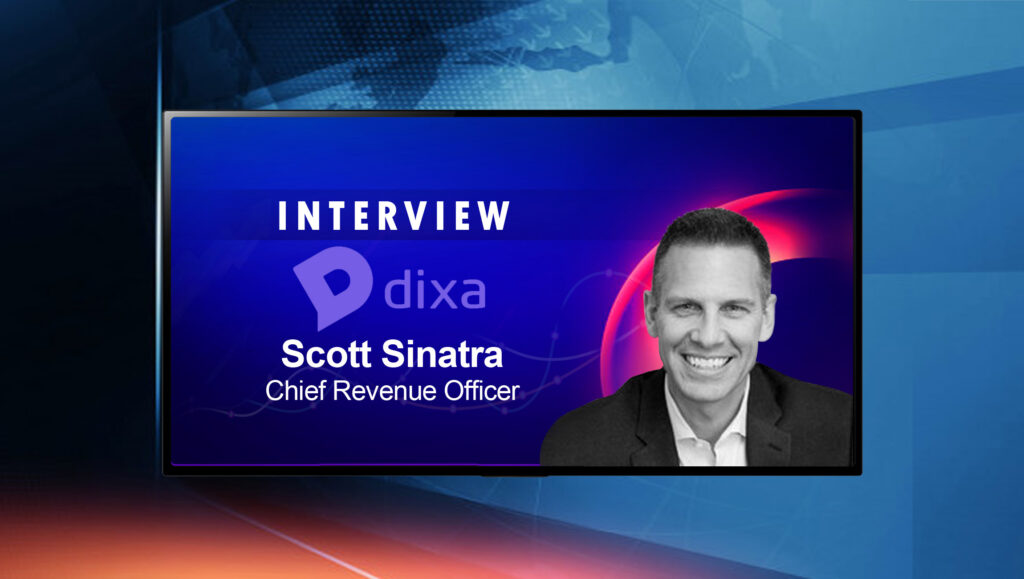The future of the typical buyer journey and digital customer experience is set to become more personalized and driven by better data and intelligence; Scott Sinatra, Chief Revenue Officer at Dixa talks about his observations in this chat: _______ I’ve been Head of Sales and CRM for three different companies that have had successful exits. As I was leaving my last venture, I became an advisor to the CEO of Dixa, Mads Fosselius. Through advising on strategy, I got to know the business and the team very well and the passion, drive and experience that runs through Dixa was immediately obvious to me. Customer experience (CX) has an enormous total addressable market – over $100 billion globally. Poor CX is also something that all of us can personally identify with. It was fascinating for me to discover that the problems that we’ve all ran into as a customer are not a result of poor agent skills or motivation, but rather technology. Brands are often handcuffed by siloed technology that limits their ability to understand the customer in a meaningful and rapid way. As industry veterans, the leadership team at Dixa understands this better than almost anyone else and, more importantly, has rethought how technology can help brands deliver a significant competitive advantage through innovative CX. Read More: Zipwhip Expands Into Canada With Calgary Developer Hub Many of us have begun to hear about how, for many companies, CX is becoming the new form of marketing. In today’s world, a poor experience can become quickly amplified through social media. As a result, any touchpoint between a company and its customer needs to be seamless, conversational, friendly and fast. If companies fail to deliver on any of these facets, it’s incredibly easy for a customer to switch to a competing brand. We’ve seen in the last 12 months that customers will gravitate towards businesses that really understand them and show they care. Further, brands and marketers are also rethinking their support architectures of old; 10-15 years ago, single channel communication was the go-to model. Since then, the world has dramatically transitioned to real-time, dynamic multichannel communication. This means that brands need to meet their customers on the channel most convenient to them and communicate seamlessly. The slightest sign of friction can send a loyal brand advocate packing to a progressive competitor (something which I have personally experienced). Finally, leaders also need to rethink how to implement the modern contact centre in a way that maximizes efficiency – this is becoming a business imperative. For me, personalization is the key. As a consumer, have you ever had to give your information twice or even three times when trying to fix a problem or get a question answered? This is because brands often have a wall between themselves and their customers and the single biggest driver of this is legacy technologies. According to Gartner, customer service teams use 8.2 screens on average to try to diagnose and satisfy customer requests. Leaders must modernize their contact centres and empower their agents with technology to have the right conversation, with the right person, at the right time. As marketers or salespeople, enriching the intelligence of your database is going to be critical to delivering hyper-personalization and the correct experience for the prospect or the customer. My dream is a frictionless world where the buyer and provider are both benefitted – and systems or databases that offer personalization and intelligence are how we get there. Technology is enabling the evolution of CX, and the future of the industry is simple: it will be highly personalized and fast. A lot of data aggregation is required to achieve this, and the use of AI and automation will ultimately make it as easy as possible for the human being on the other end to fulfil your request quickly. Some of these solutions exist today, but collectively we must continue to innovate in this space. Many of the CX trends we are seeing today are being paralleled in the sales world. Here, information is also king and any technology that limits friction between the customer and provider will become a high priority. This means the same type of tools that are being implemented in contact centres: advanced knowledge bases, predictive analytics, and automation. This will allow the salesperson to connect with their customers quickly and deliver the right pitch. There are a lot of stats that tell us how customers are consuming publicly available data about a provider. In my experience, they tend to do 50-60% of the research that they need to make a purchasing decision before they even engage with a sales team. So, leaders must consider their publicly available content and ensure it is relevant, enticing and hard-hitting. As a sales or marketing team, your technical capabilities might be differentiating, but if what a customer is reading does not resonate with them, this is ultimately a content problem. Therefore, this is less about the tech and more about the creative side of the equation: how do you differentiate your business through your content? That’s the question they need to be asking. Read More: SalesTechStar Interview with Atif Mushtaq, Founder & Chief Product Officer at SlashNext, Inc. Scott Sinatra is the Chief Revenue Officer at Dixa.Hi Scott, we’d love to hear about your journey to Dixa…tell us more about Dixa and what drew you to the company?
What are some top digital customer experience trends that you are seeing change the game for marketers and brands today?
How are you observing and sales and marketing leaders improve their customer service process and experience today? What technologies are playing a key role here?
Can you talk about the future of customer experience and the typical B2B customer journey and how you feel that will evolve?
A few thoughts on the future of salestech and what kind of tools you feel will eventually become high priority technologies and why?
A few thoughts on what you feel today’s sales and marketing leaders need to do differently (and suggestions on martech / salestech) to help them stand out from the crowd and create a better buying experience in tech.
 Dixa is a Nordic customer experience start-up which focuses on delivering the best agent and customer experience with the fastest and most efficient customer support software to help brands grow better, more conversational customer service.
Dixa is a Nordic customer experience start-up which focuses on delivering the best agent and customer experience with the fastest and most efficient customer support software to help brands grow better, more conversational customer service.Did you catch the latest episode of the SalesStar Podcast?
Liked This Article? Explore More Here:





















